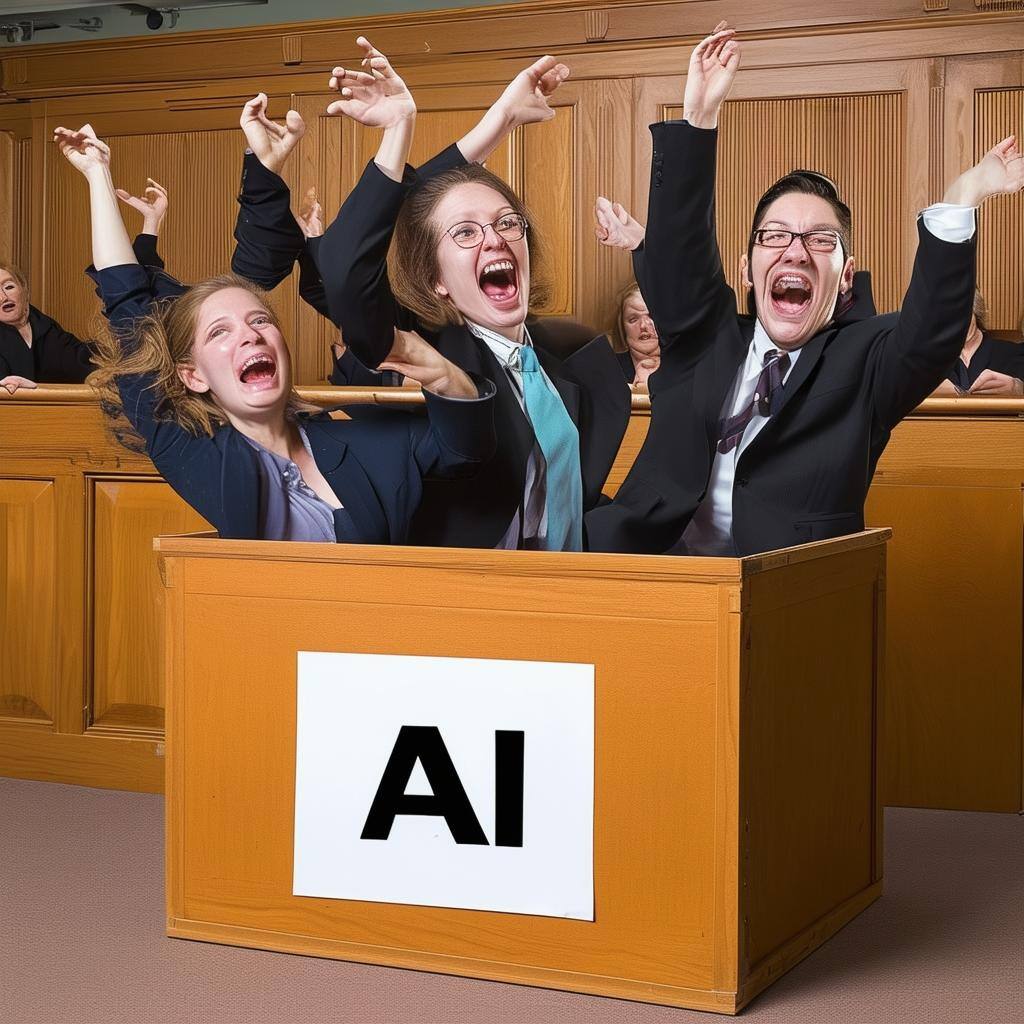AI is revolutionizing industries worldwide, and the legal field is no exception. Discover how AI is set to transform mock trials and what this means for legal professionals.
The Rise of AI in Legal Practices
Artificial Intelligence (AI) is increasingly becoming an integral part of various industries, and the legal sector is no exception. From automating document review to predicting case outcomes, AI technologies are reshaping how legal professionals perform their duties. The adoption of AI has been gradual but steady, with many law firms now integrating AI tools to enhance efficiency and accuracy.
As AI continues to evolve, its potential applications in legal practices are expanding. One of the most promising areas is the use of AI in mock trials. By leveraging AI algorithms, legal teams can simulate trial scenarios, analyze potential outcomes, and develop more robust strategies. This technological advancement is not just about replacing human effort but augmenting it to achieve better results.
How AI Enhances Mock Trial Preparations
Preparing for a trial involves extensive research, evidence gathering, and strategy development. AI can significantly streamline these processes by providing insights that would otherwise require substantial time and effort. For instance, AI can analyze vast amounts of data to identify patterns and trends that might be relevant to a case.
Moreover, AI-driven tools can help in modeling demographic regions, offering insights into how different jury pools might react to certain arguments or pieces of evidence. While the technology hasn't fully replicated the complex group dynamics of jury deliberations, it is making strides in that direction. These advancements allow legal teams to prepare more effectively and anticipate potential challenges.
The Benefits of AI-Driven Mock Trials
AI-driven mock trials offer numerous benefits, including enhanced accuracy, efficiency, and strategic depth. By simulating various trial scenarios, AI can help legal teams identify the strengths and weaknesses of their cases. This enables them to refine their arguments and develop more compelling narratives.
Additionally, AI can provide real-time feedback during mock trials, allowing attorneys to adjust their strategies on the fly. This level of adaptability is crucial in a courtroom setting, where unexpected developments can occur. Furthermore, AI-driven mock trials can reduce costs and time associated with traditional mock trial preparations, making them an attractive option for law firms looking to optimize their resources.
Challenges and Ethical Considerations
Despite the promising potential of AI in mock trials, several challenges and ethical considerations must be addressed. One significant concern is the accuracy and reliability of AI predictions. While AI can analyze data and identify patterns, it is not infallible. Misinterpretation of data or biases in AI algorithms can lead to flawed outcomes.
Ethical considerations also come into play, particularly regarding privacy and data security. Legal professionals must ensure that the data used in AI-driven mock trials is handled with the utmost care and complies with all relevant regulations. Additionally, there is the question of the role of human judgment in legal proceedings. While AI can provide valuable insights, it should not replace the nuanced understanding and ethical considerations that human attorneys bring to the table.
The Future Landscape: AI and Legal Professionals
The future of AI in legal practices, particularly in mock trials, is bright and full of potential. As AI technologies continue to advance, their applications in the legal field will become more sophisticated and reliable. It is likely that AI will become an indispensable tool for legal professionals, helping them navigate complex cases with greater ease and precision.
However, the integration of AI into legal practices will require ongoing collaboration between technologists and legal experts. By working together, these professionals can ensure that AI tools are developed and used in ways that enhance, rather than replace, the critical functions of human attorneys. As we look to the future, it is clear that AI will play a pivotal role in shaping the legal landscape, offering new opportunities and challenges for legal professionals.
Other Persuadius articles addressing mock trials:
- Is Your Jury Consultant Doing These 12 Things Helping You Prepare for a Mock Trial?
- The 5 Very Best Reasons to Conduct a Mock Trial
- 6 Good Reasons to Conduct a Mock Trial
- 6 Ways to Use a Mock Trial to Develop Your Opening Statement
- 5 Ways That a Mock Trial Informs and Shapes Voir Dire Questions
- 12 Astute Tips for Meaningful Mock Trials
- 11 Problems with Mock Trials and How to Avoid Them
- 7 Questions You Must Ask Your Mock Jury About Litigation Graphics
- 10 Things Every Mock Jury Ever Has Said
- How Early-Stage Focus Groups Can Help Your Trial Preparation






Leave a Comment